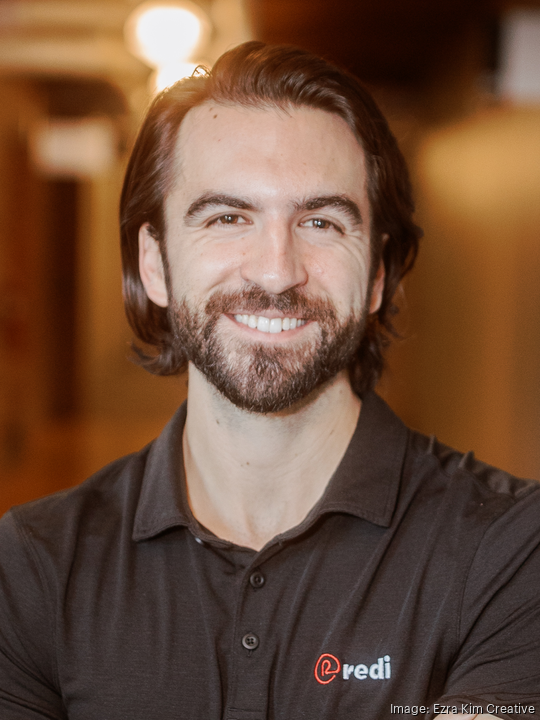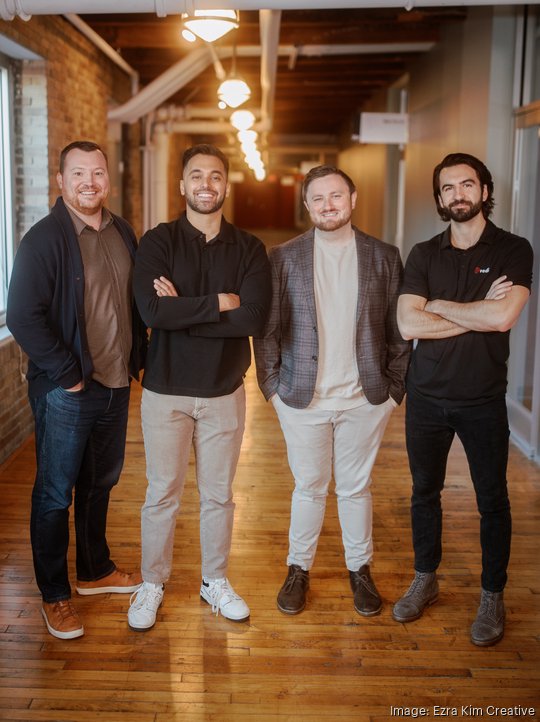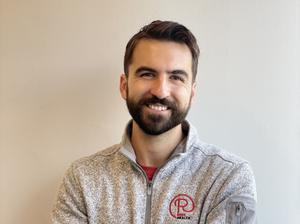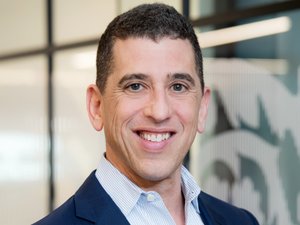
A Columbus startup more than doubled adoption last year of its all-in-one app for managing chronic disease – but did it by rejecting grow-at-all-costs mode.
Redi Health has raised $14 million to spur growth in a "capital-efficient way," co-founder and CEO Luke Buchanan said. The money will go toward building out its network and finding more ways to reach patients early.
"Our No. 1 focus is on responsible growth – and even more than that, impact on the patients," he said in an interview. "The fact we've grown the way we have and been able to achieve this funding in this environment is a testament to the fact that it's working."
Blue Heron Capital, a growth equity firm in Richmond, Virginia, that focuses on early-stage tech companies, led the Series B round.
"We were able to pick the best partner and Blue Heron was certainly the best partner," Buchanan said.
New investor North Coast Ventures also participated along with returning investors Refinery Ventures, Mutual Capital Partners, M25 and Columbus-based Rev1 Ventures. Redi last raised $3.7 million in 2022.
"The digital health sector presents a tremendous opportunity for innovation, and Redi Health is at the forefront of this transformation," Blue Heron Partner Gordon Crenshaw said in a news release.
The firm has worked with similar health-tech companies and understands the unique problems they face – and can help other portfolio companies avoid repeating mistakes, Buchanan said.
"They understand that journey and do a good job of helping companies walk that same path," he said.
Blue Heron also draws on a collaborative of experienced entrepreneurs to serve as directors with the startups it backs. Jim Clair, CEO of SevenRx and past executive with several other pharmacy benefits tech companies, joins Redi's board.
"He's an absolutely terrific operator," Buchanan said.
"Redi Health’s innovative approach to digital healthcare sets them apart in today’s rapidly evolving industry," Clair said in the release.

Buchanan and three co-founders left CoverMyMeds and Beam Benefits to form Redi.Health Inc. in mid-2021 – the year that venture capital soared to record highs and founders were encouraged to focus on growth and let profit wait.
Redi rejected that approach and focused on revenue, Buchanan said. That served the company well as interest rates spiked and VCs pulled back.
"That’s the name of the game in this environment," Buchanan said. "We want to balance ensuring we’re not over-expending in any particular area but also looking to maximize growth."
The company has 25 employees, and recently moved to the Arena District.
Redi's app is free for patients to use, and encompasses medication reminders, symptom trackers, meal diaries, diet plans, health education and other aspects of managing a condition.
Revenue comes from pharmaceutical manufacturers: The app digitizes enrollment in their patient support programs, which are financial aid for high-cost medications. Only about one in five patients enroll in the phone and fax-driven process.
"Pharmaceutical support by the pharmaceutical manufacturer is the support that patients are least likely to be taking advantage of today," Buchanan said.
"If the patient can't afford the copay, nobody gets any money," he said. "The person who loses the most is the patient."
About 1/3 of U.S. prescriptions pass through Redi’s network, which also includes nonprofit foundations and organizations focused on prescription affordability, specialty pharmacies, pharmacy networks, health systems and insurers.
The platform can send invitations to patients taking medications that offer support programs, but doesn’t get information on the patient unless they opt in.
"We can bring a lot of value to our patients and make it easier for them to get on the platform and get activated," Buchanan said.
Five years from now, any startup could meet any number of fates. Buchanan aims for Redi to be the “centralized area to manage health,” with private and government payers using it to approach the patient instead of patients having to hunt down savings.





